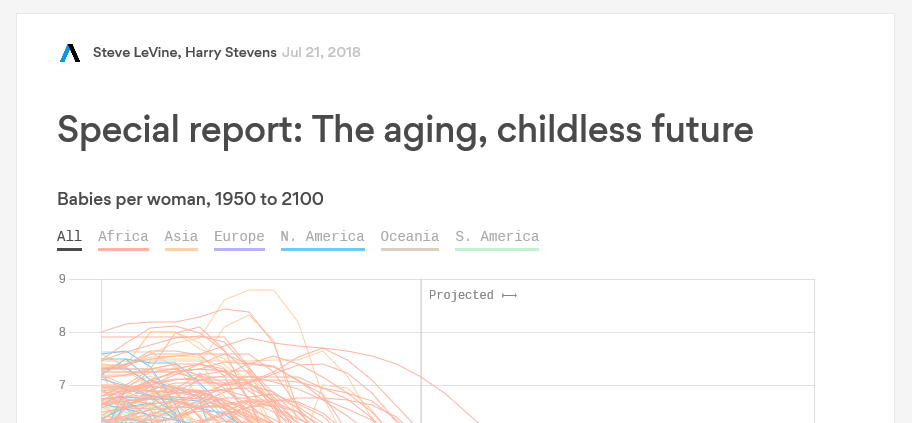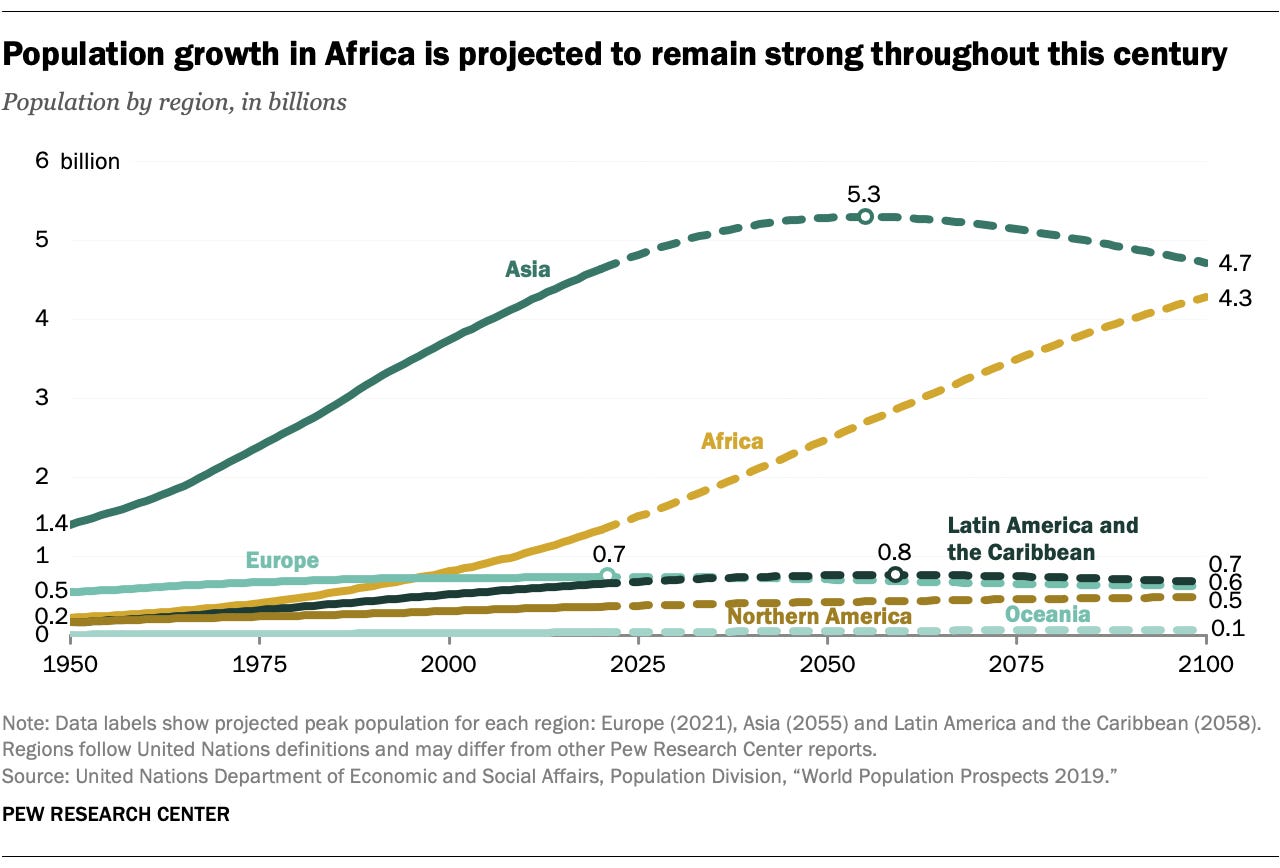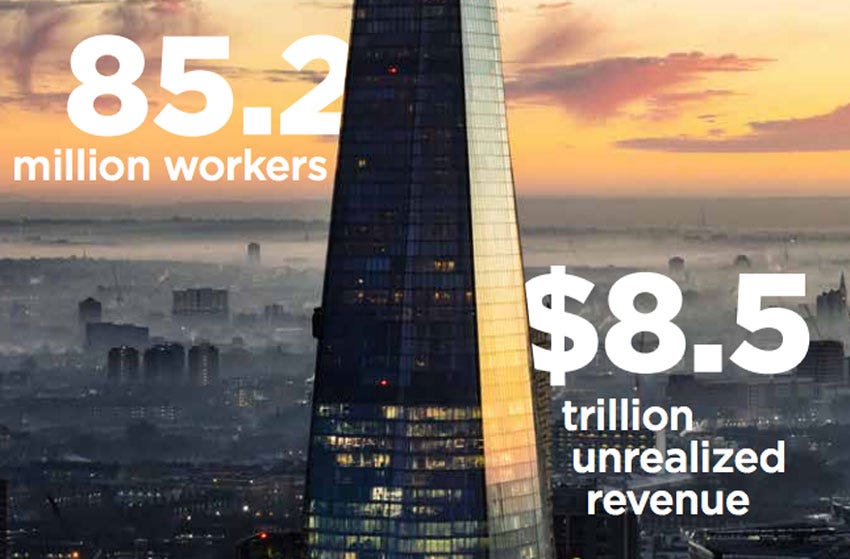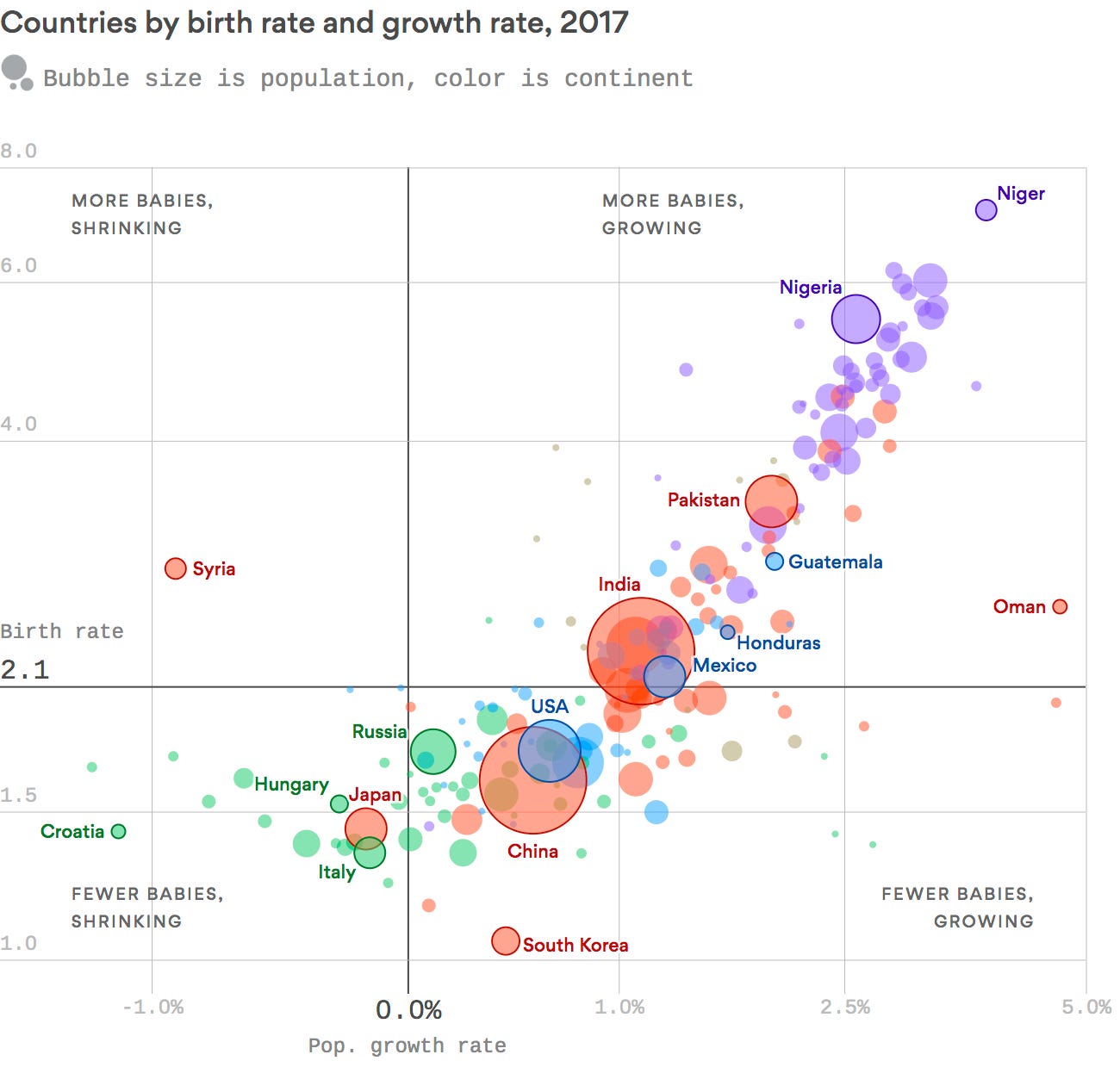A Very White Global Aging, Future of Work Debate
Discussions over the economic consequences of aging populations ignore places where there aren't
Publisher’s Riff
presented by Reality Check on WURD, airs Monday - Thursday, 4-7pm ET, streamed live at WURDradio.com, in Philly on 96.1 FM / 900 AM | #RealityCheck @ellisonreport

Current discourse over what’s been termed as “The Future of Work” typically channels worries about how much technological advancements such as Artificial Intelligence (AI), robotics and automation will take over the planet. Many experts worry about mass economic disruption and the displacement of workers. One aspect of that discussion is what the world might look like with automation and AI proliferating as populations age. As humans get older, how will economies grow? Will there be fewer jobs, yet more people living as robots and automated systems take on more lift?
What’s scaring observers are trends like these (from Pew Research) …

Much of this is angst over declining birthrates where the powerful and most influential global economies are - in the U.S., Europe and Asia. Standards of living have improved so dramatically over the past century that people are living longer, along with a dramatically decreased agrarian imperative whereby households don’t need as many children to work farms and fields as before. For most Western observers, the aging future is spooky due to the way this map looks …

… per Axios, another major mainstream publication that’s freaking out with headlines like these ….

But, as birth rates decline and populations age throughout the U.S., Europe and Asia, we see populations still on the upswing in places such as Africa when comparing …

So, if we’re truly having a holistic and “global” conversation about world aging, why fret so much if population growth in the world’s second largest continent remains that strong, along with population throughout Southern Asia still remaining decent? There is also talk about how key industries will be faced with labor shortages as much as ….

… according to LinkedIn Business. But, if we’re really trying to find a solution to that, why should governments and industries worry so much about labor shortages when you still have large pockets of the world producing younger populations? Theoretically, as a planet, economies can simply find opportunity tapping skills and talent - in a mutually beneficial way - in the places where there are younger people.

Some of the worry is rational: places where populations will continue to grow in population size are also places with smaller or less productive economies. It’s one thing to have more babies, but do you have an economy that can sustain them? For some countries, that’s not the case.
But, in terms of much of the discussion, one can’t help but sniff out a racial fear component - or, increased anxiety over the fact that the world will have fewer White people and many more Black people. That anxiety has, in many ways, become a driver of dangerous white nationalism surging in the U.S. and Europe, as well as defensive and downright racist immigration policy that also negates the value of an immigrant workforce. Societies and governments on the African continent have much work to do in expanding their economies and leveraging the impending population shift.


